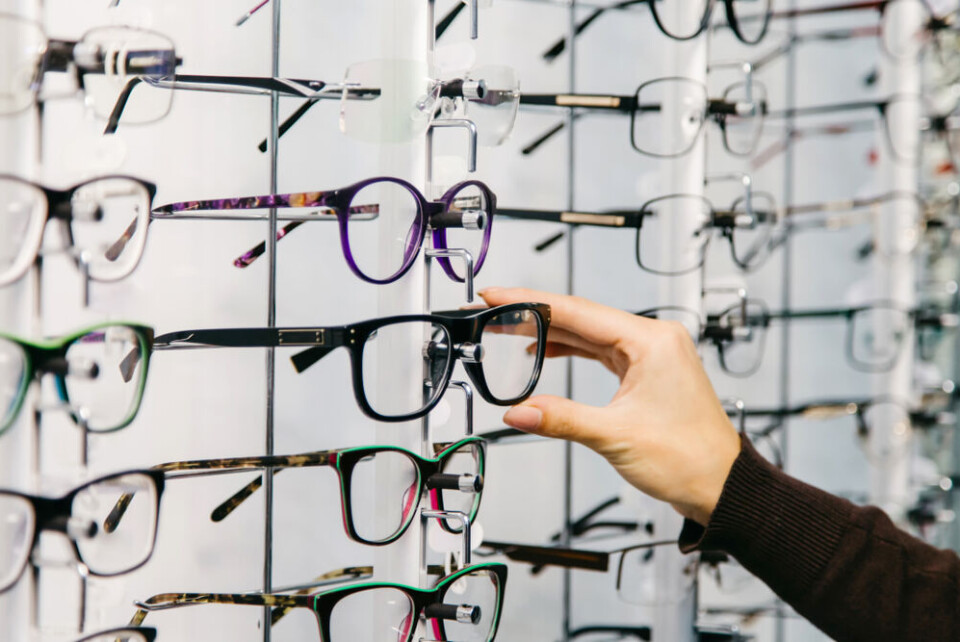-
Explained: how to register a classic car in France
It is relatively straightforward to get a carte grise véhicule de collection for your vehicle
-
Is new healthcare fee for Americans still on the way in France?
Last year French MP told how he put forward plan aimed at ‘visitor visa’ holders
-
How to fit in when you move to France: avoid that ‘expat bubble’
After two decades in central Brittany, Jill Fitzgerald O’Connor wants to help other movers feel part of their new community
How to get a free pair of glasses in France
Opticians must recommend at least one free pair under the French 100 Santé scheme

Getting a new pair of glasses can sometimes be an expensive and lengthy process, especially if you have a strong prescription.
In France, however, everyone who is fully integrated into the national social security system (Assurance Maladie) and with top-up insurance has the option to receive a free pair of glasses.
This has been the case since 2020 and the introduction of the 100% Santé scheme, which also covers hearing aids and dentures.
Under the scheme, those aged 16 and over can change their glasses for no cost every two years, providing they keep within certain limits.
Below, we explain how the process works.
All opticians must provide free frames and lenses
To start with, you should have a prescription for your vision level, which will indicate to opticians what your needs are.
Appointments to get a prescription are covered by social security and top-up insurance - you can read how to make an appointment below.
Read more: What is the process for getting glasses in France?
Once you have your prescription, you can visit any optician (there are both a number of chains and individual stores) to look for a new pair.
Opticians now have two categories of both lenses and frames, group ‘A’ and ‘B’.
Those in group ‘A’ are covered fully by the 100% Santé scheme, provided you also have complimentary top-up insurance – social security pays 60% of the costs, with your mutuelle paying the remaining 40%.
Those in group ‘B’ are partially covered, but will require you to pay the remaining balance after social security and top-up insurance deductions.
All stores must stock a certain number of completely free ‘A’ options for clients, including frames and lenses.
This includes at least 17 pairs of frames for adults and 10 for children.
Frames offered will often be basic, but must come in a range of styles and at least two different colours.
Lens options need to include thinned, anti-reflective and anti-scratch style lenses, but not necessarily transitional lenses and other features.
The scheme fully covers costs of up to €95 for those with a single-strength prescription that is a low-correction (+2 or -2 in strength), or €180 for progressive or bifocal lenses.
For those with a stronger prescription, this increases up to a cost of €265 for single-strength lenses, or €370 for lenses which are progressive/bifocal.
Note that contact lenses and sunglasses (including prescription pairs) are not covered by the scheme.
All recommendations include free pair
When discussing options with the optician or store worker, they will show you a range of frame and lens combinations, and at least one proposal must be fully covered by the 100% Santé scheme.
You can mix and match different frames and lenses from both groups.
For example, you can get lenses for your glasses from group ‘A’, covered by the scheme, but then buy frames from group ‘B’ that are more to your liking, and pay the additional costs for these.
The rest of the process remains the same – some lenses, such as those that need to be shaved down, will need to be ordered in, but this should only take a few days.
Generally you pay when you collect your glasses, not when they are ordered.
You have to pay up front, but reimbursement from social security will take place around one week later, and around ten working days from your mutuelle.
Related articles
How do I book a hearing test in France and how much does it cost?
























